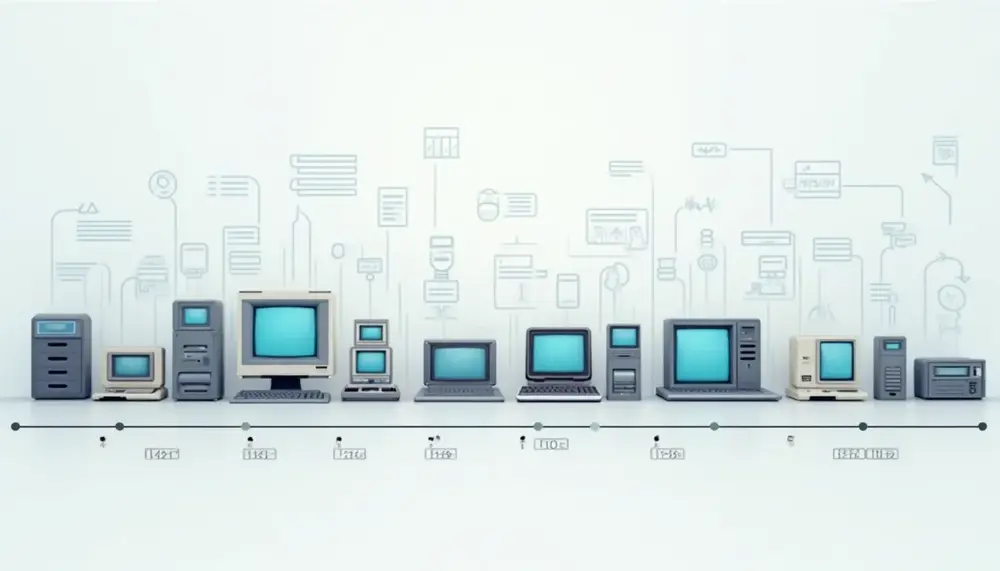Posts on the Topic Data

The Master of Science in Information Systems Management (MS-ISM) equips students with essential skills for leadership roles by blending technical expertise and managerial knowledge, while offering flexible learning options and practical experience. Its comprehensive curriculum prepares graduates to excel in...

Management Information Systems (MIS) integrate data, technology, people, and processes to enhance decision-making and organizational efficiency, evolving from manual systems to advanced cloud solutions. Their development reflects technological advancements that have transformed business strategies while presenting challenges like implementation costs...

Core MIS principles involve transforming raw data into actionable insights through analytics, system design, and governance to drive business value while ensuring compliance. Mastery requires understanding the full data lifecycle, applying appropriate methodologies, effective visualization, modular system design, thorough testing,...

Information management systems empower schools by centralizing data, automating tasks, and enabling proactive decision-making for improved learning outcomes. They enhance transparency, communication, and resource optimization but require investment in training and careful attention to privacy concerns....

Information Management Systems (IMS) centralize, streamline, and secure data to enhance decision-making, foster innovation, ensure compliance, and support scalability. Key components like integration capabilities, user-friendly interfaces, automation tools, and robust security measures make IMS essential for operational efficiency and strategic...

The National Accreditation Board for Hospitals and Healthcare Providers (NABH) drives excellence in healthcare by setting patient-centric, safe, and efficient care standards. Its focus on Information Management Systems ensures data accuracy, security, interoperability, and continuous improvement to enhance operational efficiency...

The article emphasizes designing an effective Information Management System (IMS) syllabus by aligning academic theory with practical applications, using a modular structure to ensure clarity and progression. It highlights the importance of clear objectives, audience-specific tailoring, real-world relevance, and fostering...

Nanyang Technological University (NTU) integrates knowledge management into its academic ecosystem, offering a globally recognized Master of Science program that combines interdisciplinary learning, practical applications, and industry collaboration to prepare students for leadership in the evolving knowledge economy. The program...

Knowledge management (KM) is essential for modern organizations, transforming raw data into actionable insights through structured systems and technology to enhance decision-making, collaboration, and innovation. Effective KM fosters employee satisfaction, agility, and continuous learning while leveraging tools like AI and...

Zara revolutionizes fast fashion through a unique blend of creativity, data-driven decision-making, and ICT integration, enabling trend anticipation and rapid product cycles. Its knowledge management system ensures seamless collaboration and efficiency but demands significant resources while balancing speed with employee...

Information Management Systems (IMS) have evolved into dynamic tools that integrate advanced technologies like AI, cloud computing, and IoT to drive data-driven decisions and innovation. These systems enhance collaboration, scalability, and real-time analytics but face challenges such as security concerns,...

The article explores the theoretical foundations of information management systems, emphasizing their role in structuring and optimizing data processes within organizations. It highlights various theories like Transactive Memory System and Impression Management Theory, discussing their benefits and challenges in enhancing...

Knowledge retrieval transforms raw data into actionable insights using advanced techniques, enhancing decision-making and productivity by providing timely access to relevant information. Effective knowledge retrieval streamlines workflows, minimizes errors, supports innovation, and fosters a dynamic work environment adaptable to change....

Mastering storage and retrieval procedures is essential for businesses to enhance operational efficiency, data security, and decision-making by organizing information systematically. Understanding encoding methods and employing efficient storage techniques like structured formats, compression, deduplication, tiered storage, cloud solutions, advanced search...

Information storage and retrieval are essential for effective data management, with challenges like redundancy, scalability, security, and integrity in storage; while poor indexing, irrelevant results, latency, and fragmentation hinder retrieval. Strategies such as cloud storage, deduplication, tiered storage solutions enhance...

The article emphasizes the importance of mastering data input, storage, and retrieval for effective data management while highlighting key practices like validation, standardization, automation, structuring, backup strategies, indexing, query optimization, and leveraging tools to enhance efficiency and security. It also...



















